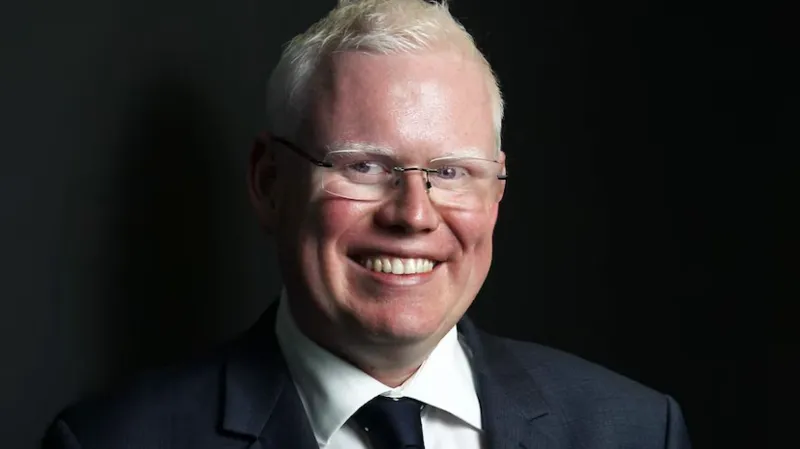Pope Francis travels to Congo with a pious wish for peace
The first pontiff to travel to Congo in 37 years will bring a simple message of peace, perhaps strengthening the sense of community in a nation where the Catholic Church has long played a dominant role.

They hardly let anyone through at Ndolo. At the barriers of the domestic airport, soldiers only wave through travelers with their suitcases, as well as a truck loaded with steel beams which will be used to build an open-air church on the site.
On Wednesday, Pope Francis will hold celebrate Mass here for the people of Kinshasa, the capital of the Democratic Republic of Congo. The 86-year-old pontiff had planned to visit last year, but needed to postpone his trip for six months due to health reasons.
Yellow minibuses, motorcyle taxis, jeeps and vans rush past the entrance to the airport. At the next intersection, Jean Marie Yenga has lined up his handmade beds on the ground. The 35-year-old — who studied education but hasn't been able to find a teaching job — now stands here in his worn polo shirt, selling furniture.
The visit of a pope is a special occasion for devout Catholics, he said. "I really want to see the pope myself and take part in the Mass. But I don't know yet whether admission will be free for all of us."
Pope 'wants to comfort the Congolese'
It's been 37 years since the last visit of a pope to the central African country. Back then, when Congo was still Zaire, Pope John Paul II met with former President Mobutu Sese Seko. As it was then, Kinshasa today is still a city with atmosphere, known for its bars, rumba music and flaunted wealth. It is also a metropolis of contrasts: A large portion of the estimated 15 million inhabitants live in poverty.
In the country's east, people often feel abandoned by the capital. Since Mobutu's fall in the 1990s, peace has not returned to many places. Between 1998 and 2007 alone, up to 5.4 million lives were lost in conflicts or the humanitarian crises they sparked, according to a study by the aid organization International Rescue Committee.
In 2020, Human Rights Watch counted more than 120 rebel groups in eastern Congo. One of them, the M23, recently went on the offensive near Goma, reigniting a conflict with neighboring Rwanda. A December report from the UN Group of Experts found "substantial evidence" of the involvement of the Rwandan Defense Force in the conflict.
The pope will travel to Congo with a message of peace, said Ettore Balestrero, the Vatican's ambassador, or nuncio, in the country, who resides in a stately mansion in the government quarter.
"The pope wants to comfort the Congolese who have suffered so much in recent years," Balestrero told DW. "He wants to heal the open wounds of this violence."
Just last week, UN peacekeepers discovered mass graves with more than 50 victims in Ituri Province.
In October, attackers killed a nun and others, in a hospital. The pope wants to condemn such massacres, Balestrero said. "He wants to ask God for forgiveness for the blood that has been shed and will be shed."
Travel to conflict-torn east ruled out
Congo is one of the world's most Catholic countries. Vatican statistics show more than 52 million — about half of the population — are adherents of the religion. The Catholic Church supports more than 13,100 elementary schools in the country and 40% of health care facilities, said Balestrero.
The Church sends election observers and reconnaissance missions to crisis areas. "This is the role of the Church: It supports democratic awareness in the country and helps with reconciliation within society," he added.
Yenga, the furniture seller near the airport, is from Kisangani where at the turn of the millennium Rwandan and Ugandan troops fought several times in fierce street battles over the control of strategic locations.
"It would be really nice if the pope could reconcile the people. Peace is needed in the east," said Yenga, who lost a brother in the fighting, pointing to a scar on his leg.
Pope Francis had actually wanted to travel to the border town of Goma in the east, but the ongoing M23 rebellion got in the way. However, a delegation of war victims is flying to Kinshasa to meet with the pope.
Not all the pope's events will be marked by the conflict. The head of the Catholic Church will meet with young people and catechists at Kinshasa's Martyrs' Stadium on Thursday. And before his departure a day later for South Sudan — the pope's second stop — he will consult with the Congolese Bishops' Conference. Congo's next presidential election — due in December — is likely also to be on the agenda.
A message of peace for Congo
Meanwhile, a few days before his visit, preparations continue. Ndolo Airport is located in Barumbu district, home to more than 100,000 people. The area is known for its technical college, rowdy bars and a few unsafe side streets. Plastic bottles litter the ground, and vehicles slalom around potholes.
These days though, construction workers are using jackhammers and filler to patch the worst of it. They will give the pope a "warm welcome," said Christophe Lomami, the mayor of the municipality.
The pope is expected to focus on the suffering in the east in his speeches, which hardly plays a role in everyday life in the capital, some 1,500 kilometers (930 miles) away to the west.
Will those in Barumbu feel their own concerns are being overlooked? The war concerns them all, said Lomami. "The pope comes with a message of peace. Is there anyone in this world who can refuse peace?"
The conflicts in eastern Congo are so tangled that a simple message of peace from the pontiff is not likely to untie those knots. But for those who are caught up in it, perhaps it would be comforting to know that they are not completely forgotten.
Source: DW







